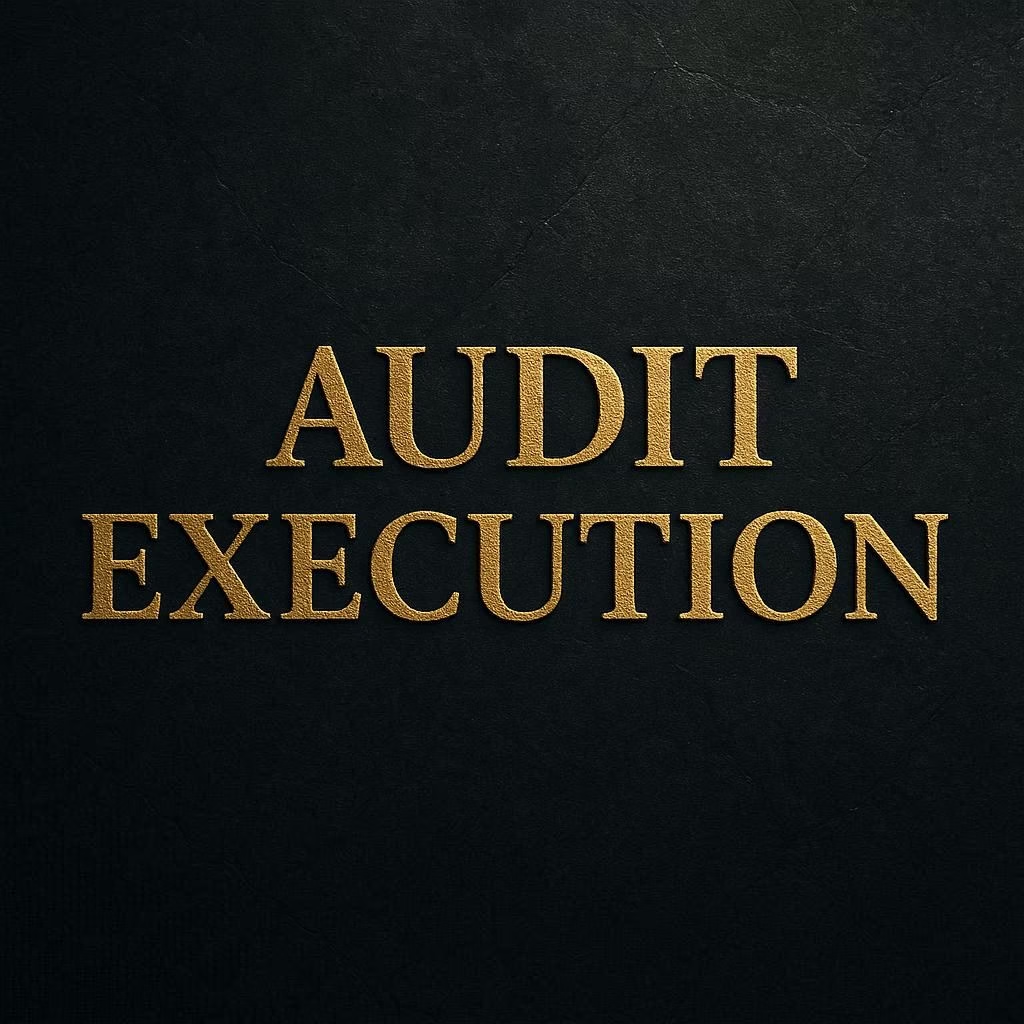What is a Financial Audit?

Audit is an independent examination of the books of accounts undertaken by independent external auditors to check the accuracy, credibility,reliability of the financial statements.
A financial audit is undertaken to examine the true and fair position of the organization. it is undertaken with the view that whether the stated financial reports depict a true and fair position of the organisation.
“Audit is an examination of accounting records, undertaken with a view to establishing whether the correctly and completely reflect the transactions to which they purport to relate.” Prof. Dickers
“Auditing is concerned with the verification of accounting data, determining the accuracy and reliability of accounting statements and reports.” R.R. Mautz
“Long range objectives of an Audit should be to serve as a guide to management's future decisions in all financial matter such as controlling, forecasting, analysing and reporting. These objectives help the business unit to improve its performance.” Arthur W. Holme

- Auditing is nothing but the systematic and critical examination and verification of the books of accounts. It can be undertaken throughout the year or periodically.
- The primary aim is to find out whether the financial statements exhibit a true and fair view of the business.
- Origin of the term audit is said to be in the Latin term audire which means to listen.
- Audit of accounts by a duty qualified chartered accountant is mandatory for the registered joint stock companies, public trusts, bigger co-operative societies and for income tax and VAT tax payers above a particular limit.

Objectives of Audit:
- To find the reliability of the financial position and profit and loss statement.
- To check whether the financial statements of the company present a true and fair view.
- To check whether the financial statements are kept as per the provisions of the relevant Act.
- Verification of the entries with the relevant documentary evidences.
- To check whether all the money received is accounted for or not and all the payments made have proper supporting documents.
- To conduct an independent review of financial statements.
- Auditor has to examine the prevailing internal control and internal check systems prevalent in the organisation and must check the arithmetical accuracy of the books of accounts.
- The auditor has to check the physical existence of various assets shown in the balance sheet and check whether they present a true and fair value.
- After checking the accounts the auditor has to express his or her personal judgement on the maintenance of the books of accounts.
- The company who audits its financial statements on a timely basis builds a good reputation and goodwill.
- Helps the stakeholders with decision making as audited accounts are considered more reliable.
- To detect and prevent frauds and errors.
The main difference between the two is that errors are generally committed due to lack of knowledge and are considered to be innocent, whereas, frauds are committed intentionally.
PREPARATION FOR AN AUDIT?

- Planning is thinking well before commencing any activity. We all think before doing any important work. Audit of accounts being an important job the auditor things in advance before starting any audit and prepares a detailed plan of action.
Necessary Steps:
Before the commensement of any new audit ,the auditor must take the following steps:

1. Ascertain the scope of duties: To start with, the auditor should assertain the exact nature and scope of his or her duties. This question does not arise in case of a statutory audit as his or her duties are enumerated in the concerned law only.For example; when an auditor is appointed to audit the accounts of a joint stock company, there are provisions in the Companies Act, about the duties, rights of an auditor. However, if a concern in which audit is not legally mandatory, auditor must communicate or discuss the scope of his or her duties with the management of the concern.
2. Acquisition of Appointment letter: Before the commencement of the audit work, the auditor must obtain his or her appointment letter from the client. Such letter should consist of his or her duties, remuneration, duration allowed to complete the job. Engagement letter leads to an audit contract.
3. Nature of the client’s business: Each and every business has its own special and unique features. Hence, business follows and accounting system that suits its needs. There is no one uniform accounting system that can be followed by every business organisation. So the auditor before commenting his auditing work should study the special problems of the business unit and the system of accounts prevalent in the organisation.
4. Obtain a list of accountable officers: The auditor should obtain a list of responsible and accountable officers, so that, while going through the audit procedure, if the auditor needs any information or clarification on any specific point, he can directly contact the concerned officer. Auditor should also obtaine information about the extent and scope of authority of each of them.
5. Knowledge of technical details: The auditor should also acquire some knowledge about the technical details of business. This will help him or her to understand and analyse the nature of the transactions while auditing them.

6. Inquiry into special circumstances, if any: Should enquire into special circumstances surrounding his appointment. In case he or she is appointed in place of another auditor it is his professional duty to communicate with him.
7. Instructions to the client:
- Accounts should be finalized and kept ready for audit.
- Necessary schedules be prepared and made available. For example: list of debtors and creditors, fixed assets, outstanding incomes, incomes received in advance, cost of acquisition and market price statement of deferred revenue expenditure etc. The auditor should also ask to produce the final accounts of last two three years with auditor’s report.




You could definitely see your enthusiasm in the work you write. The arena hopes for even more passionate writers such as you who aren’t afraid to mention how they believe. Always follow your heart. “Faith in the ability of a leader is of slight service unless it be united with faith in his justice.” by George Goethals.
“Thank you for your very generous appreciation and taking the time to share your positive experience.”
I don’t even know how I stopped up here, however I assumed this put up was good. I do not know who you’re but certainly you are going to a famous blogger if you happen to aren’t already 😉 Cheers!
It is really so great to receive such a wonderful and valuable feedback of yours. Thank you for recognizing our contribution. Hope Simplified Fiscal Affairs helps and becomes succesful in creating a positive impact on our visitors. We wil always strive to perform the best we can!
We look forward to seeing you again soon!
I intended to write you the little observation to be able to give thanks as before for your personal lovely ideas you have shown above. It was really incredibly open-handed of people like you to allow unreservedly exactly what many people might have sold as an ebook to end up making some profit for their own end, most notably given that you could have tried it in the event you wanted. Those creative ideas also worked to become a good way to be aware that other individuals have the identical passion really like mine to realize whole lot more in respect of this condition. I believe there are millions of more enjoyable periods in the future for people who view your site.
“Thank you for acknowledging our work on Simplified Fiscal Affairs. Your recognition motivates us to maintain high standards in future projects. We appreciate the opportunity to contribute to this website building.”
I have recently started a website, the information you offer on this web site has helped me greatly. Thanks for all of your time & work.
All the best for the new venture! Wishing you great success ahead!
so much fantastic info on here, : D.
Thanks, we appreciate your feedback!
I’m still learning from you, while I’m improving myself. I absolutely liked reading all that is posted on your blog.Keep the articles coming. I liked it!
Thank you for the recognition!
Hello very nice blog!! Guy .. Excellent .. Superb .. I’ll bookmark your web site and take the feeds additionally…I am glad to find so many helpful info right here in the publish, we need develop extra techniques on this regard, thank you for sharing.
Great to know, enjoy!
“Thank you for your kind words and for noticing the effort we put into this website. We really appreciate your positive feedback and guidance.”
hello!,I like your writing so much! share we communicate more about your post on AOL? I need an expert on this area to solve my problem. May be that’s you! Looking forward to see you.
For further correspondence please write to us at simplifiedfiscalaffairs@gmail.com
Wohh exactly what I was searching for, regards for posting.
What I don’t realize is in reality how you’re no longer actually much more neatly-appreciated than you might be now. You’re very intelligent. You realize thus considerably relating to this matter, made me individually imagine it from numerous various angles. Your personal stuffs nice. All the time handle it up!
“Thank you for your kind words and for noticing the effort we put into this website. We really appreciate your positive feedback and guidance. It’s great to know that our contributions are recognized and we look forward to continue to come up with the best!”
I like this web site because so much useful stuff on here : D.
Glad to know! Simplified Fiscal Affairs appreciates your feedback…
Way cool, some valid points! I appreciate you making this article available, the rest of the site is also high quality. Have fun.
“Thank you for the fantastic feedback! We’re thrilled you find the site’s performance and content to be excellent. Your positive comments mean a lot to us.”
It’s actually a nice and useful piece of info. I’m glad that you simply shared this helpful info with us. Please stay us informed like this. Thanks for sharing.
Your message is truly appreciated.It encourages us to maintain and exceed our standards!
You can certainly see your enthusiasm in the work you write. The arena hopes for even more passionate writers such as you who aren’t afraid to say how they believe. Always go after your heart.
Your message was such a nice surprise — thank you!
Well I definitely liked reading it. This article procured by you is very helpful for proper planning.
Great to know, enjoy!
“Thank you for your kind words and for noticing the effort we put into this website. We really appreciate your positive feedback and guidance.”
Outstanding post, you have pointed out some fantastic points, I also conceive this s a very wonderful website.
Your message is such a nice surprise — Thank you!
Hey! Would you mind if I share your blog with my twitter group? There’s a lot of folks that I think would really enjoy your content. Please let me know. Many thanks
Sure, No Problem!
We appreciate that!
Hello! Would you mind if I share your blog with my myspace group? There’s a lot of people that I think would really appreciate your content. Please let me know. Thanks
Sure!
Enjoyed examining this, very good stuff, regards. “To be positive To be mistaken at the top of one’s voice.” by Ambrose Bierce.
Great wordpress blog here.. It’s hard to find quality writing like yours these days. I really appreciate people like you! take care
“Thank you for your kind words and for noticing the effort we put into this website. We really appreciate your positive feedback and guidance. It’s great to know that our contributions are recognized and we look forward to continue to come up with the best!”
As a website possessor I believe the content matter here is rattling wonderful , appreciate it for your hard work. You should keep it up forever! Best of luck.
Thanks for the valuable fedback!
This is really interesting, You are a very skilled blogger. I have joined your feed and stay up for in search of more of your excellent post. Additionally, I have shared your web site in my social networks!
“Thank you for your kind words and for noticing the effort we put into this website. We really appreciate your positive feedback and guidance. It’s great to know that our contributions are recognized and we look forward to continue to come up with the best!”
I really appreciate this post. I’ve been looking everywhere for this! Thank goodness I found it on Bing. You’ve made my day! Thanks again!
Thanks for your kind words!
Very instructive and fantastic body structure of content material, now that’s user pleasant (:.
Hello.This article was extremely interesting, especially since I was investigating for thoughts on this matter last Friday.
I would like to point out my respect for your kind-heartedness for people that really need guidance on this particular concern. Your personal commitment to getting the message along had become exceptionally significant and has frequently empowered regular people much like me to get to their pursuits. Your interesting suggestions indicates so much to me and much more to my colleagues. Best wishes; from all of us.
Glad to know that you like this website and it’s successful in creating a positive impact…
We appreciate your message enormously!
Thank you!
You could certainly see your skills within the work you write. The arena hopes for more passionate writers like you who are not afraid to say how they believe. All the time follow your heart.
Very well written article. It will be supportive to anyone who utilizes it, including me. Keep doing what you are doing – i will definitely read more posts.
Sure, Keep Visiting!
We really appreciate your feedback!
Hi there, I found your blog by the use of Google even as looking for a related matter, your web site got here up, it appears good. I have bookmarked it in my google bookmarks.
“Thank you for your very generous appreciation. Your comments are always welcome and valued.”
“It’s heartwarming to receive such a positive feedback. Thank you for your encouragement.”
I really like your writing style, great info , thankyou for posting : D.
Great to know, enjoy!
“Thank you for your kind words and for noticing the effort we put into this website. We really appreciate your positive feedback and guidance.”
Wow that was strange. I just wrote an very long comment but after I clicked submit my comment didn’t show up. Grrrr… well I’m not writing all that over again. Anyways, just wanted to say excellent blog!
That’s okay!
Don’t worry, we receive all the submitted comments!
Thanks for the appreciative feedback, glad to know that Simplified Fiscal Affairs is making a positive difference!
I like this web blog so much, saved to favorites.
Your message is such a nice surprise — Thank you!
Thank you for your very generous appreciation and taking the time to share your positive experience!
Glad that we could make a positive difference!
I must convey my gratitude for your kind-heartedness for those people who require help on your area. Your real commitment to getting the message all-around turned out to be wonderfully powerful and has truly encouraged associates just like me to reach their dreams. Your entire interesting help and advice indicates a whole lot to me and additionally to my colleagues. Thank you; from everyone of us.
Your message is such a nice surprise — Thank you!
Thank you for your very generous appreciation and taking the time to share your positive experience!
Glad that we could make a positive difference!
As soon as I noticed this website I went on reddit to share some of the love with them.
I am delighted that I discovered this web site, just the right information that I was looking for! .
Glad to know! Keep Visiting!
I like what you guys are up too. Such intelligent work and reporting! Carry on the excellent works guys I have incorporated you guys to my blogroll. I think it’ll improve the value of my site 🙂
Super-Duper site! I am loving it!! Will come back again. I am bookmarking your feeds also.
Great to know!
There is apparently a bunch to identify about this. I believe you made various good points in features also.
Hiya, I’m really glad I’ve found this information. Nowadays bloggers publish just about gossips and net and this is really irritating. A good website with exciting content, this is what I need. Thank you for keeping this web-site, I will be visiting it. Do you do newsletters? Can’t find it.
“Thank you for your very generous appreciation. Your comments are always welcome and valued.”
“It’s heartwarming to receive such a positive feedback. Thank you for your encouragement.”
We are really happy that you are interested to see the latest updates of Simplified Fiscal Affairs. You can simply subscribe to our Push Notifications (The bell icon that appears), it will notify you whenever we post any update!
Keep up the superb work, I read few content on this web site and I conceive that your site is rattling interesting and contains sets of wonderful information.
I dugg some of you post as I cogitated they were very beneficial very helpful
“Thank you for your very generous appreciation. Your comments are always welcome and valued.”
This is a very good tips especially to those new to blogosphere, brief and accurate information… Thanks for sharing this one. A must read article.
Glad to know! Keep Visiting!
Can I just say what a relief to find someone who really knows what theyre speaking about on the internet. You undoubtedly know find out how to deliver a problem to gentle and make it important. Extra individuals need to learn this and perceive this aspect of the story. I cant consider youre not more fashionable since you definitely have the gift.
Your message is such a nice surprise — Thank you!
Thank you for your very generous appreciation and taking the time to share your positive experience!
Glad that we could make a positive difference!
Nice read, I just passed this onto a friend who was doing some research on that. And he actually bought me lunch because I found it for him smile Thus let me rephrase that: Thanks for lunch!
Great to know, enjoy!
Nice read, I just passed this onto a friend who was doing some research on that. And he just bought me lunch as I found it for him smile Therefore let me rephrase that: Thank you for lunch! “By nature, men are nearly alike by practice, they get to be wide apart.” by Confucius.
“Thank you for your very generous appreciation. Your comments are always welcome and valued.”
I have been reading out a few of your posts and it’s pretty good stuff. I will make sure to bookmark your site.
Your message is such a nice surprise — Thank you!
Thank you for your very generous appreciation and taking the time to share your positive experience!
Glad that we could make a positive difference!
I?¦ve been exploring for a little for any high quality articles or blog posts on this kind of house . Exploring in Yahoo I finally stumbled upon this web site. Studying this info So i am happy to convey that I have a very good uncanny feeling I came upon exactly what I needed. I so much unquestionably will make certain to don?¦t overlook this site and provides it a look regularly.
Your message is such a nice surprise — Thank you!
Thank you for your very generous appreciation and taking the time to share your positive experience!
Glad that we could make a positive difference!
so much fantastic information on here, : D.
I’ve learn several good stuff here. Definitely value bookmarking for revisiting. I surprise how a lot effort you place to make this type of wonderful informative web site.
Your message is such a nice surprise — Thank you!
Thank you for your very generous appreciation and taking the time to share your positive experience!
Glad that we could make a positive difference!
Just what I was looking for, thanks for putting up.
Great to know, enjoy!
“Thank you for your kind words and for noticing the effort we put into this website. We really appreciate your positive feedback and guidance.”
My brother suggested I might like this website. He was entirely right. This post truly made my day. You cann’t imagine simply how much time I had spent for this info! Thanks!
Your message is such a nice surprise — Thank you!
Thank you for your very generous appreciation and taking the time to share your positive experience!
Glad that we could make a positive difference!
You made several good points there. I did a search on the subject and found mainly folks will have the same opinion with your blog.
What’s Happening i am new to this, I stumbled upon this I’ve found It positively useful and it has helped me out loads. I hope to contribute & assist other users like its helped me. Good job.
“Thank you. It’s rewarding to know our efforts are making a positive difference”.
Simplified Fiscal Affairs really appreciates that!
We look forward to seeing you again soon!
I am constantly thought about this, regards for putting up.
“Thank you. It’s rewarding to know our efforts are making a positive difference”.
It’s hard to find knowledgeable people on this matter, however you sound like you understand what you’re talking about! Thanks
“Thank you. It’s rewarding to know our efforts are making a positive difference”.
Simplified Fiscal Affairs really appreciates that!
We look forward to seeing you again soon!
What¦s Taking place i am new to this, I stumbled upon this I’ve discovered It positively helpful and it has aided me out loads. I am hoping to contribute & assist other users like its helped me. Good job.
“Thank you for your very generous appreciation. Your comments are always welcome and valued.”
“It’s heartwarming to receive such a positive feedback. Thank you for your encouragement.”
I just couldn’t depart your website prior to suggesting that I extremely enjoyed the standard info a person provide for your visitors? Is gonna be back often to check up on new posts
“Thank you for your very generous appreciation. Your comments are always welcome and valued.”
“It’s heartwarming to receive such a positive feedback. Thank you for your encouragement.”
I was recommended this blog by my cousin. I am not sure whether this post is written by him as no one else know such detailed about my trouble. You’re wonderful! Thanks!
I’m still learning from you, but I’m trying to achieve my goals. I absolutely enjoy reading everything that is written on your site.Keep the tips coming. I loved it!
“Thank you for your very generous appreciation. Your comments are always welcome and valued.”
“It’s heartwarming to receive such a positive feedback. Thank you for your encouragement.”
I really like your writing style, good info , regards for putting up : D.
“Thank you for your very generous appreciation. Your comments are always welcome and valued.”
“It’s heartwarming to receive such a positive feedback. Thank you for your encouragement.”
Great beat ! I wish to apprentice at the same time as you amend your web site, how can i subscribe for a weblog site? The account helped me a acceptable deal. I have been tiny bit familiar of this your broadcast provided shiny clear concept
very good publish, i definitely love this web site, keep on it
Thank you for another wonderful article. Where else may just anybody get that type of information in such a perfect manner of writing? I have a presentation subsequent week, and I am at the search for such info.
WONDERFUL Post.thanks for share..more wait .. …
“Thank you for your very generous appreciation. Your comments are always welcome and valued.”
“It’s heartwarming to receive such a positive feedback. Thank you for your encouragement.”
Thank you for sharing excellent informations. Your web-site is so cool. I’m impressed by the details that you have on this site. It reveals how nicely you perceive this subject. Bookmarked this web page, will come back for more articles. You, my friend, ROCK! I found simply the info I already searched all over the place and simply could not come across. What an ideal web site.
“Thank you for your very generous appreciation. Your comments are always welcome and valued.”
“It’s heartwarming to receive such a positive feedback. Thank you for your encouragement.”
Spot on with this write-up, I truly suppose this web site wants way more consideration. I’ll probably be again to read rather more, thanks for that info.
“Thank you for your very generous appreciation. Your comments are always welcome and valued.”
“It’s heartwarming to receive such a positive feedback. Thank you for your encouragement.”
Attractive section of content. I just stumbled upon your web site and in accession capital to assert that I get actually enjoyed account your blog posts. Any way I will be subscribing to your feeds and even I achievement you access consistently quickly.
“Thank you for your very generous appreciation. Your comments are always welcome and valued.”
“It’s heartwarming to receive such a positive feedback. Thank you for your encouragement.”
whoah this blog is wonderful i love reading your posts. Keep up the great work! You know, many people are hunting around for this info, you could help them greatly.
Great to know, enjoy!
“Thank you for your kind words and for noticing the effort we put into this website. We really appreciate your positive feedback and guidance.”
I’m not that much of a online reader to be honest but your blogs really nice, keep it up! I’ll go ahead and bookmark your website to come back later on. Cheers
“Thank you for your very generous appreciation. Your comments are always welcome and valued.”
“It’s heartwarming to receive such a positive feedback. Thank you for your encouragement.”
Just want to say your article is as astonishing. The clearness in your post is simply excellent and i can assume you’re an expert on this subject. Well with your permission allow me to grab your RSS feed to keep up to date with forthcoming post. Thanks a million and please keep up the enjoyable work.
“Thank you for your very generous appreciation. Your comments are always welcome and valued.”
“It’s heartwarming to receive such a positive feedback. Thank you for your encouragement.”
I¦ve been exploring for a little for any high-quality articles or blog posts in this kind of area . Exploring in Yahoo I eventually stumbled upon this web site. Reading this information So i am glad to express that I’ve an incredibly good uncanny feeling I came upon exactly what I needed. I so much indisputably will make certain to don¦t omit this site and provides it a glance on a continuing basis.
There is visibly a bundle to realize about this. I consider you made various good points in features also.
Thanks!
I view something genuinely special in this web site.
I like meeting useful info, this post has got me even more info! .
“Thank you for your very generous appreciation. Your comments are always welcome and valued.”
“It’s heartwarming to receive such a positive feedback. Thank you for your encouragement.”
Hello.This post was extremely motivating, especially since I was investigating for thoughts on this subject last couple of days.
“Thank you for your very generous appreciation. Your comments are always welcome and valued.”
“It’s heartwarming to receive such a positive feedback. Thank you for your encouragement.”
Thanks for the good writeup. It if truth be told used to be a leisure account it. Glance advanced to more added agreeable from you! However, how can we keep in touch?
“Thank you for your very generous appreciation. Your comments are always welcome and valued.”
“It’s heartwarming to receive such a positive feedback. Thank you for your encouragement.”
Hello. magnificent job. I did not imagine this. This is a great story. Thanks!
“Thank you for your kind words and for noticing the effort we put into this website. We really appreciate your positive feedback and guidance.”
Utterly composed articles, regards for information .
I like what you guys are up too. Such intelligent work and reporting! Keep up the excellent works guys I¦ve incorporated you guys to my blogroll. I think it will improve the value of my web site 🙂
Wonderful work! This is the type of info that should be shared around the internet. Shame on Google for not positioning this post higher!
“Thank you for your very generous appreciation. Your comments are always welcome and valued.”
You are a very capable person!
“Thank you for your very generous appreciation. Your comments are always welcome and valued.”
Deference to post author, some superb entropy.
Thanks for the valuable feedback!
I don’t commonly comment but I gotta admit thankyou for the post on this one : D.
Simply wanna comment on few general things, The website design and style is perfect, the subject material is really good : D.
“Thank you for your kind words and for noticing the effort we put into this website. We really appreciate your positive feedback and guidance.”
You have observed very interesting details! ps decent web site.
“Thank you for your kind words and for noticing the effort we put into this website. We really appreciate your positive feedback and guidance.”
Thankyou for helping out, superb info .
Great to know!
My developer is trying to convince me to move to .net from PHP. I have always disliked the idea because of the costs. But he’s tryiong none the less. I’ve been using Movable-type on a number of websites for about a year and am worried about switching to another platform. I have heard good things about blogengine.net. Is there a way I can transfer all my wordpress posts into it? Any help would be greatly appreciated!
Here’s how you can import your WordPress posts into BlogEngine.NET:
Export WordPress content to BlogML:
Log into your WordPress admin dashboard.
Navigate to Tools > Export.
Select “BlogML” as the export format. You might need to install a BlogML export plugin if it’s not a default option in your WordPress version.
Download the generated BlogML XML file. This file will contain your posts, pages, comments, and other relevant content.
Import BlogML into BlogEngine.NET:
Log into your BlogEngine.NET admin panel.
Navigate to the import section, which is typically found under Settings > Import.
Select “BlogML” as the import format.
Upload the BlogML XML file you exported from WordPress.
Follow the on-screen instructions to complete the import process. This may involve mapping authors or categories if they differ between the two platforms.
Please do some solid research from your end as well, before performing any export…
We suggest you to take a proper backup of your website before implementing any sort of change…
Hey there! Quick question that’s completely off topic. Do you know how to make your site mobile friendly? My website looks weird when browsing from my apple iphone. I’m trying to find a template or plugin that might be able to fix this problem. If you have any recommendations, please share. Appreciate it!
Go for a mobile friendly theme…
There is a plugin, “WPtouch- Make Your WordPress Website Mobile Friendly”…
Try doing some solid research on the above mentioned recommendations!
Take some time to understand your dear website, analyse what works the best for it and implement the plugins/themes having the perfect compatibility!
All The Best!
Can I just say what a relief to find someone who actually knows what theyre talking about on the internet. You definitely know how to bring an issue to light and make it important. More people need to read this and understand this side of the story. I cant believe youre not more popular because you definitely have the gift.
“Thank you for your kind words and for noticing the effort we put into this website. We really appreciate your positive feedback and guidance.”
You have observed very interesting points! ps nice website.
Thanks for the feedback!
This design is spectacular! You definitely know how to keep a reader entertained. Between your wit and your videos, I was almost moved to start my own blog (well, almost…HaHa!) Fantastic job. I really loved what you had to say, and more than that, how you presented it. Too cool!
“Thank you for your very generous appreciation. Your comments are always welcome and valued.”
I like what you guys are up too. Such smart work and reporting! Carry on the superb works guys I’ve incorporated you guys to my blogroll. I think it’ll improve the value of my web site :).
I think that is one of the so much vital information for me. And i’m glad reading your article. But want to commentary on few normal issues, The web site taste is great, the articles is in reality nice : D. Just right process, cheers
“Thank you for your very generous appreciation. Your comments are always welcome and valued.”
I am constantly thought about this, regards for putting up.
Good day! I know this is kind of off topic but I was wondering if you knew where I could find a captcha plugin for my comment form? I’m using the same blog platform as yours and I’m having problems finding one? Thanks a lot!
There is a security plugin named named “All In One Security” which provides the function of adding captchas on required pages.
Please do some solid research in your plugins section, you will find many plugins, implement a plugin compatible with your website!
We cannot exactly recommend you a specific name as each website is different and needs the softwares which work the best with it!
Take some time to understand your dear website, analyse what works the best for it and implement the plugins having the perfect compatibility!
All The Best!
I am glad to be one of the visitants on this great internet site (:, thanks for posting.
“Thank you for your very generous appreciation. Your comments are always welcome and valued.”
Merely wanna input on few general things, The website layout is perfect, the subject matter is rattling fantastic : D.
“It’s heartwarming to receive such a positive feedback. Thank you for your encouragement.”
“It’s heartwarming to receive such a positive feedback.”
I like what you guys are up also. Such intelligent work and reporting! Carry on the superb works guys I have incorporated you guys to my blogroll. I think it will improve the value of my web site 🙂
I’d constantly want to be update on new blog posts on this website , bookmarked! .
“Thank you for your kind words and for noticing the effort we put into this website. We really appreciate your positive feedback and guidance.”
I really enjoy reading on this site, it has wonderful posts.
“Thank you for your kind words and for noticing the effort we put into this website. We really appreciate your positive feedback and guidance.”
I’ve read a few excellent stuff here. Definitely price bookmarking for revisiting. I surprise how a lot attempt you place to create this sort of fantastic informative web site.
“Thank you for your kind words and for noticing the effort we put into this website. We really appreciate your positive feedback and guidance.”
Thanks for ones marvelous posting! I seriously enjoyed reading it, you are a great author.I will be sure to bookmark your blog and will eventually come back later on. I want to encourage one to continue your great posts, have a nice day!
“Thank you for your kind words and for noticing the effort we put into this website. We really appreciate your positive feedback and guidance.”
Hi there! This post couldn’t be written any better! Reading through this post reminds me of my previous room mate! He always kept talking about this. I will forward this article to him. Pretty sure he will have a good read. Thank you for sharing!
Excellent post. I was checking constantly this blog and I’m impressed! Extremely useful info specially the last part 🙂 I care for such info a lot. I was looking for this particular info for a very long time. Thank you and good luck.
“Thank you for your kind words and for noticing the effort we put into this website. We really appreciate your positive feedback and guidance.”
There is noticeably a bundle to know about this. I assume you made certain nice points in features also.
I love it when people come together and share opinions, great blog, keep it up.
“Thank you for your kind words and for noticing the effort we put into this website. We really appreciate your positive feedback and guidance.”
You have brought up a very fantastic points, appreciate it for the post.
“Thank you for your kind words and for noticing the effort we put into this website. We really appreciate your positive feedback and guidance.”
I was suggested this blog by way of my cousin. I’m not sure whether this publish is written via him as nobody else understand such distinct about my problem. You are wonderful! Thanks!
“Thank you for your kind words and for noticing the effort we put into this website. We really appreciate your positive feedback and guidance.”
I am glad to be one of the visitors on this great site (:, thankyou for putting up.
“Thank you for your kind words and for noticing the effort we put into this website. We really appreciate your positive feedback and guidance.”
Useful information. Fortunate me I discovered your website accidentally, and I am surprised why this accident didn’t took place in advance! I bookmarked it.
“Thank you for your kind words and for noticing the effort we put into this website. We really appreciate your positive feedback and guidance.”
he blog was how do i say it… relevant, finally something that helped me. Thanks
“Thank you for your kind words and for noticing the effort we put into this website. We really appreciate your positive feedback and guidance.”
Keep up the superb work, I read few articles on this website and I believe that your weblog is really interesting and contains circles of superb information.
“Thank you for your kind words and for noticing the effort we put into this website. We really appreciate your positive feedback and guidance.”
I have been reading out many of your stories and I must say nice stuff. I will definitely bookmark your blog.
“It’s heartwarming to receive such a positive feedback. Thank you for your encouragement.”
Very interesting info !Perfect just what I was looking for!
“It’s heartwarming to receive such a positive feedback. Thank you for your encouragement.”
Thank you for some other magnificent article. The place else may just anyone get that type of info in such an ideal approach of writing? I’ve a presentation next week, and I am at the look for such information.
“It’s heartwarming to receive such a positive feedback. Thank you for your encouragement.”
I think this web site holds some really superb info for everyone : D.
“It’s heartwarming to receive such a positive feedback. Thank you for your encouragement.”
Thanks , I’ve recently been searching for info about this subject for a long time and yours is the greatest I have discovered so far.
WONDERFUL Post.thanks for share..more wait .. …
“It’s heartwarming to receive such a positive feedback. Thank you for your encouragement.”
I have been surfing online more than 3 hours today, but I never found any interesting article like yours. It is lovely price enough for me. Personally, if all site owners and bloggers made excellent content material as you probably did, the web will probably be a lot more useful than ever before.
“It’s heartwarming to receive such a positive feedback. Thank you for your encouragement.”
Very excellent info can be found on blog. “There used to be a real me, but I had it surgically removed.” by Peter Sellers.
“It’s heartwarming to receive such a positive feedback. Thank you for your encouragement.”
We look forward to seeing you again soon, keep visiting!
Thanks for some other magnificent post. Where else may anybody get that kind of info in such a perfect method of writing? I’ve a presentation next week, and I am at the search for such information.
“It’s heartwarming to receive such a positive feedback. Thank you for your encouragement.”
We look forward to seeing you again soon, keep visiting!
Very interesting subject, thanks for posting.
Thanks for the feedback!
We look forward to seeing you again soon, keep visiting!
Wow, wonderful blog!
Simplified Fiscal Affairs really appreciates that, it gives us immense motivation and inspiration to keep moving forward and to come up with the best possible content.
you have an ideal blog right here!
Simplified Fiscal Affairs really appreciates that, it gives us immense motivation and inspiration to keep moving forward and to come up with the best possible content.
I like what you guys are up also. Such smart work and reporting! Keep up the excellent works guys I have incorporated you guys to my blogroll. I think it’ll improve the value of my web site 🙂
I like this post, enjoyed this one regards for putting up.
Simplified Fiscal Affairs really appreciates that, it gives us immense motivation and inspiration to keep moving forward and to come up with the best possible content.
Simply a smiling visitant here to share the love (:, btw great style. “Justice is always violent to the party offending, for every man is innocent in his own eyes.” by Daniel Defoe.
Simplified Fiscal Affairs really appreciates that, it gives us immense motivation and inspiration to keep moving forward and to come up with the best possible content.
Hello.This article was extremely remarkable, especially because I was looking for thoughts on this matter last Friday.
Simplified Fiscal Affairs really appreciates that, it gives us immense motivation and inspiration to keep moving forward and to come up with the best possible content.
What I don’t understood is in fact how you’re no longer really a lot more smartly-liked than you may be right now. You’re very intelligent. You recognize therefore considerably on the subject of this matter, made me for my part imagine it from a lot of various angles.
Simplified Fiscal Affairs really appreciates that, it gives us immense motivation and inspiration to keep moving forward and to come up with the best possible content.
Howdy! This is kind of off topic but I need some guidance from an established blog. Is it difficult to set up your own blog? I’m not very techincal but I can figure things out pretty quick. I’m thinking about setting up my own but I’m not sure where to start. Do you have any points or suggestions? With thanks
Starting a website of your own is indeed a great idea. It will help you a lot to gain better insights of computer science and technology, you will grow a lot in terms of the capability to manage a website and attain greater knowledge in your subject matter…
Establishing a website of your own is really not that difficult, you will learn to build great things and understand what to do one step after another. Starting is the most important element, everything can’t be built quickly, keep working, developing and executing…
We have created this website working with wordpress…
The bottom-line is, just focus on your work and execution other things will follow.
We are more than happy to help and address your queries…
For further guidance please write to us @ simplifiedfiscalaffairs@gmail.com
All the best!
Founder/CEO
Simplified Fiscal Affairs
I went over this web site and I think you have a lot of superb information, saved to my bookmarks (:.
“Thank you for your very generous appreciation. Your comments are always welcome and valued.”
Wonderful goods from you, man. I’ve be aware your stuff previous too and you’re simply extremely fantastic. I really like what you’ve acquired here, certainly like what you are saying and the way through which you are saying it. You are making it enjoyable and you continue to care for to keep it smart. I can’t wait to read far more from you. That is actually a tremendous website.
“Thank you for your very generous appreciation. Your comments are always welcome and valued.”
Thanks on your marvelous posting! I seriously enjoyed reading it, you may be a great author.I will make sure to bookmark your blog and will come back from now on. I want to encourage you to ultimately continue your great posts, have a nice morning!
Thanks for the feedback!
We look forward to seeing you again soon, keep visiting!
Very efficiently written post. It will be helpful to anybody who utilizes it, as well as yours truly :). Keep doing what you are doing – I will definitely read more posts.
“Thank you for your very generous appreciation. Your comments are always welcome and valued.”
I’m not that much of an online reader to be honest but your blogs really nice, keep it up! I’ll go ahead and bookmark your website to come back down the road. Many thanks
“Thank you for your very generous appreciation. Your comments are always welcome and valued.”
Hi , I do believe this is an excellent blog. I stumbled upon it on Yahoo , I will come back once again. Money and freedom is the best way to change, may you be rich and help other people.
Simplified Fiscal Affairs really appreciates that, it gives us immense motivation and inspiration to keep moving forward and to come up with the best possible content.
I could definitely see your expertise in the work you write. The sector hopes for more passionate writers such as you who are not afraid to mention how they believe. All the time go after your heart.
“Thank you for your very generous appreciation. Your comments are always welcome and valued.”
It’s in reality a nice and helpful piece of information. I am happy that you shared this useful info with us. Please stay us up to date like this. Thanks for sharing.
“Thank you for your very generous appreciation. Your comments are always welcome and valued.”
As I website possessor I conceive the subject material here is real superb, appreciate it for your efforts.
Great to know!
“Thank you for your kind words and for noticing the efforts we put into this website. We really appreciate your positive feedback and guidance.”